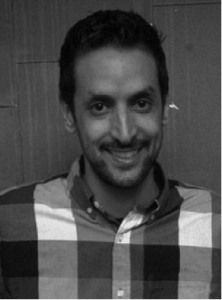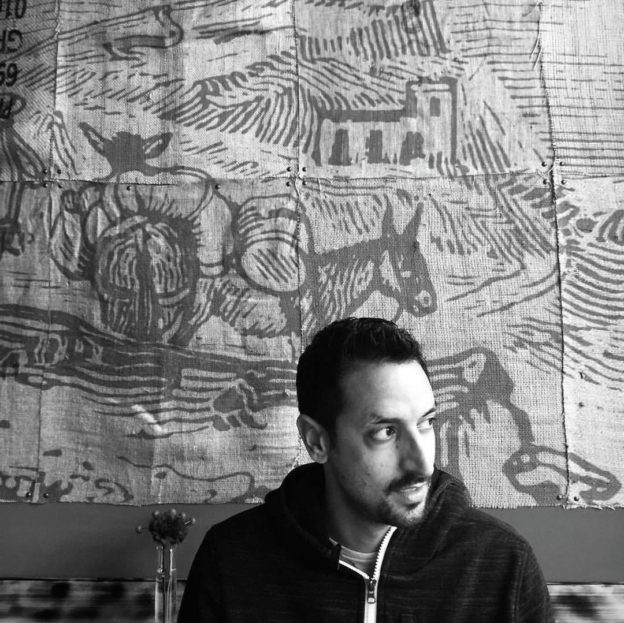By George Mekhail
I have changed a lot over the past 18 months. I’ve deconstructed much of my worldview and consider the journey as just getting started. I am a heretic, a pirate and a mystic. I used to see things very differently than I see them today, and I hope that this process of change, growth and evolution only continues. I cannot deny that what I’ve experienced has been healthy.
I often ask myself how I got here, why I’m here and if it’s a good thing that I’m here. I talk to myself more and more these days. I ask: what factors lead to my spiritual curiosity, what moments shaped my trajectory and what common thread has been there throughout? Do I like me more or less? Do I allow others to define me or do I find my value and worth in Eternal things?
I’m learning that asking questions is far more important than answering questions. This is one of the most valuable lessons that contemplation has taught me on my journey.
Let’s be honest: on the surface, answering questions is way more fun than asking questions. If I am answering a question, I am the center of attention. I am on the conclusive side of the discussion. I am in control. But, if I am asking a question, I am deflecting attention. I am teeing up the discussion, for better or worse. I am releasing control. Asking a question opens things up and possibilities abound. Answering a question shuts things down, declaring alternative possibilities irrelevant.
Now there is obviously a time to answer questions, I’m not anti-answers. But I would describe this pivot towards more question asking and less question answering as the largest contributor to this current season of peace in my life. A paradoxically difficult season, filled with extremely challenging days, betrayals, insecurity and instability. But despite the external factors that might be perceived as negative, contemplative practice helps me count them as blessings.
A few weeks back, after some time in reflection, I started to realize that I was feeling misunderstood. I’m not sure if that’s common or not, but this came to light in a recent session with Phileena, my spiritual director. She proceeded like she often does, by asking me to “withhold judgement, consider how it feels to be misunderstood.”
If you’re like me, that is a difficult question. I’m generally unaware of my feelings, often preferring solutions to stillness. So if I feel misunderstood, my next step is typically to ramp up efforts to deliver clarity so I can be understood. Boom. Problem solved, question answered. No feelings necessary.
Except when it doesn’t go down that way. Which is more often the case. It starts a fruitless cycle of frustration which does not satisfy the soul. Even if I successfully deliver clarity, I never actually dealt with the ramifications of feeling misunderstood.
That’s why I love the phrase “without judgement.” Phileena always emphasizes this part of the process, and it took me a while to see its real value. But in my desire to explore why I’m feeling misunderstood, the temptation is to offer simplistic answers which carry unhelpful judgements like “because ‘Nikole’ just doesn’t get it” or “because I haven’t spent enough time explaining my idea to ‘Nikole’.”
In my case, feeling misunderstood requires me to actually FEEL misunderstood.
That’s a huge step. To feel our feelings instead of merely talking about them.
Then a deep breath.
Man. I feel really misunderstood.
Now, without judgement. {I’m not mad, upset, disappointed, proud of myself/others for this feeling. This feeling simply is my experience.}
I am now aware of this feeling. I acknowledge it, I welcome it, I learn to integrate it – without judgement – into my present circumstance.
How does this feeling of being misunderstood relate to my ego? What other questions does this reveal and how do they reveal the unconscious patterns I operate out of daily?
Another deep breath.
I don’t want to oversimplify a contemplative process that actually requires a lot of hard work. Adopting a contemplative stance in life is like working out, studying for an exam or investing in a relationship. It requires focus and commitment. But the fruit is incredible. Instead of reacting to life, we learn to respond. Reacting generates a lot of contraction. Responding generates expansiveness.
Instead of relentlessly pursuing to deliver answers, I’m learning to reach out and claim the gift of more questions–which have turned out to be critical to my growth. Questions develop our awareness. Furthermore, questions acknowledge that no matter how much “Nikole” doesn’t get it, her experience is also her experience and it carries its own validity.
Contemplation is teaching me that questions are greater than answers, because questions lead to more meaningful connection to myself, to God and to others.
 George Mekhail has been serving as the Executive Pastor at EastLake Community Church since July 2011. He is also the Chair of the Board for Gravtity, a Center for Contemplative Activism. He lives in Bothell, Washington with his wife Danielle, and their two beautiful children, Kingston and Saxyn. He has a deep set love for his family and makes it a goal in life to show up for them.
George Mekhail has been serving as the Executive Pastor at EastLake Community Church since July 2011. He is also the Chair of the Board for Gravtity, a Center for Contemplative Activism. He lives in Bothell, Washington with his wife Danielle, and their two beautiful children, Kingston and Saxyn. He has a deep set love for his family and makes it a goal in life to show up for them.
